Let’s Talk Gerontocracy

by Michael Feeley
If you’re mature, you’ve probably heard the complaints: “It’s time for fresh blood,” “Step aside for the younger generation,” or “We need new perspectives.” The term behind this attitude is “gerontocracy”- rule by elders – and it has become a lightning rod in today’s increasingly age-obsessed culture.
Gerontocracy simply means a system where older people hold positions of power and authority. While the term is often used critically, it reflects something humans have recognized for years: accumulated experience has genuine value.
But here’s what critics consistently miss: in our rapidly changing world, experience isn’t just valuable – it’s essential.
Think about today’s significant global challenges.
Climate change requires leaders who understand long-term consequences, not just quarterly results.
Economic policy needs people who’ve lived through multiple recessions, not just read about them.
Social issues benefit from those who’ve witnessed how similar problems played out decades ago.
At 73, I’ve seen technologies emerge, fail, and evolve. I’ve watched political movements rise and fall. I’ve navigated career changes, economic uncertainty, family challenges, and personal growth that younger people are just beginning to face. This isn’t just “being old” – it’s accumulated expertise and institutional wisdom that can’t be googled, downloaded, or artificially replicated. Experience, skills, knowledge and expertise I am proud of.
Modern Japan and Italy may be criticized as gerontocracies, but consider this: these societies are grappling with aging populations, complex international relationships, and economic challenges that require the kind of understanding and action that only comes from decades of living it.
Look around: Warren Buffett became more successful in his 80s and 90s. Corporate boards specifically recruit older members for their judgment and perspective. Many of today’s most respected CEOs and business leaders are in their 60s, 70s, and beyond.
Even in Silicon Valley (supposedly youth-obsessed), the most successful companies are increasingly led by people in their 50s, 60s, and beyond who combine innovation with the wisdom to avoid costly mistakes.
While younger voices bring energy and fresh ideas, mature adults provide something equally crucial: the ability to distinguish between genuine innovation and mere trends, to understand unintended consequences, and to offer a historical perspective that can prevent repeating costly mistakes and vision for change.
The healthiest organizations and societies don’t silence valuable experience – they skillfully integrate it with innovation. Your decades of learning, problem-solving, and relationship-building represent a form of intelligence that artificial intelligence cannot replicate.
Rather than stepping aside, consider how your hard-earned experience can guide today’s complex decisions. Mentor younger colleagues. Share your valuable insights. Speak up confidently in discussions. Your perspective isn’t outdated – it’s seasoned, tested, and more relevant than ever in a world that often moves too fast to learn from history.
The goal is intergenerational. Connecting, blending, supporting, not choosing between youth and experience, but recognizing that both perspectives are essential for navigating our increasingly complex and modern world effectively.
Thanks – Michael (he, him)
Please share this Daily.
This matters too – An African Proverb on Ageing.
#2055





